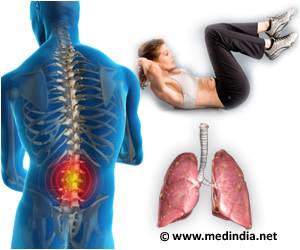Experts reveal key recommendations and updates to lung cancer screening using low-dose CT (LDCT).

TOP INSIGHT
The guidelines address who to screen, how to identify appropriate patients for screening, how to perform LDCT and how to manage abnormal findings.
• For asymptomatic smokers and former smokers age 55 to 77 who have smoked 30 pack-years or more and either continue to smoke or have quit within the past 15 years, we suggest that annual screening with low-dose CT should be offered.
• For asymptomatic smokers and former smokers who do not meet the smoking and age criteria in Recommendation #1 but are deemed to be at high risk of having/developing lung cancer based on clinical risk prediction calculators, we suggest that low-dose CT screening should not be routinely performed.
• For individuals who have accumulated fewer than 30 pack-years of smoking or are younger than age 55 or older than age 77, or have quit smoking more than 15 years ago, and do not have a high risk of having/developing lung cancer based on clinical risk prediction calculators, we recommend that low-dose CT screening should not be performed.
• For individuals with comorbidities that adversely influence their ability to tolerate the evaluation of screen-detected findings, or tolerate treatment of an early stage screen-detected lung cancer, or that substantially limit their life expectancy, we recommend that low-dose CT screening should not be performed.
"The potential benefit of cancer screening to reduce the number of cancer-related deaths must be balanced with potential harms of screening," said Gerard Silvestri, M.D., F.C.C.P., guideline panelist and CHEST immediate past president. "Current evidence suggests that even within groups at high risk of developing a cancer, only a small fraction of those screened will benefit, while everyone screened is exposed to potential harms including physical and psychosocial consequences of identifying and subsequently evaluating a screen-detected nodule, radiation exposure, overdiagnosis and overtreatment. For this reason, our recommendations for screening have evolved to be even more selective and specifically target those highest risk populations. The evidence currently does not support widespread adoption of lung cancer screening outside of those patients described in our recommendations."
ABOUT CHEST 2017
CHEST 2017 is the 83rd annual meeting of the American College of Chest Physicians, held in Toronto, Ontario. The American College of Chest Physicians, publisher of the journal CHEST®, is the global leader in advancing best patient outcomes through innovative chest medicine education, clinical research and team-based care. Its mission is to champion the prevention, diagnosis and treatment of chest diseases through education, communication and research. It serves as an essential connection to clinical knowledge and resources for its 19,000+ members from around the world who provide patient care in pulmonary, critical care and sleep medicine.
Source-Eurekalert
 MEDINDIA
MEDINDIA




 Email
Email










